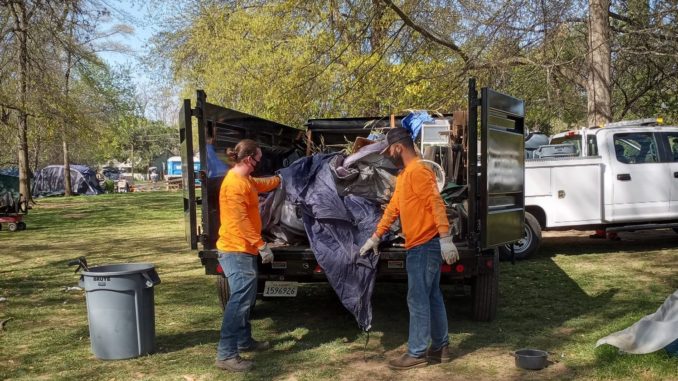
A select group of Chico City Council members, Butte County supervisors and city and county staff have been meeting behind closed doors to discuss homeless issues for the past three months. While such collaboration could positively impact efforts to address the homeless crisis, the group has been operating outside of the public eye and is reportedly exploring theories—about unhoused residents and local resources—that many find debatable.
Namely, Butte County doesn’t suffer from a lack of available shelter options, and some people simply prefer to “to live outdoors in a nomadic type of environment.” To investigate these theories, the county is paying a controversial new nonprofit group to conduct surveys among Chico’s unhoused population.
Those conversations occurred at the city/county collaborative group’s most recent meeting on March 12, as confirmed by three people in attendance—Supervisor Tami Ritter, Mayor Andrew Coolidge and Chico Homeless Solutions Coordinator Suzi Kochems.
Council Member Alex Brown—who was not present at or invited to participate in the meetings—said she and other council members have not received briefings or details about the city/county group’s monthly gatherings, and expressed concern that direction and decisions made outside of the public purview and without input from service providers may directly affect the City Council’s efforts to address homelessness.
“I see this as a severe lack of transparency,” she said, “and honestly, it’s what I think we’ve come to kind of expect of this new City Council … lots of efforts to censor groups that are working towards solutions and a lot of things going on behind closed doors that seem to inform what happens in the public, but that a lot of people are being kept out of the loop on, including several council members.”
Email raises questions
The CN&R learned about these closed-door discussions after obtaining a copy of an email Kochems sent to a local homeless advocate who asked to remain anonymous. It was sent to the paper by a third party and seems to indicate a change in direction from the city’s year-long effort to explore new shelter and sanctioned camping options.
“I so appreciate your efforts, but I also want to let you know that council members have made it clear that they are no longer interested in an outdoor shelter environment and are significantly leaning towards not providing any additional shelter beds,” the email reads. “The belief is that there will be enough beds once the Jesus Center, Torres Shelter and a couple of other projects are complete. It seems that council believes that enough has been done, but to prove their theory they are requesting data from outreach teams working in the current encampment areas.”
Kochems elaborated on this statement in a series of emails with the CN&R last week, explaining it was based in part on conversations occurring at the collaborative city/county group’s meetings.
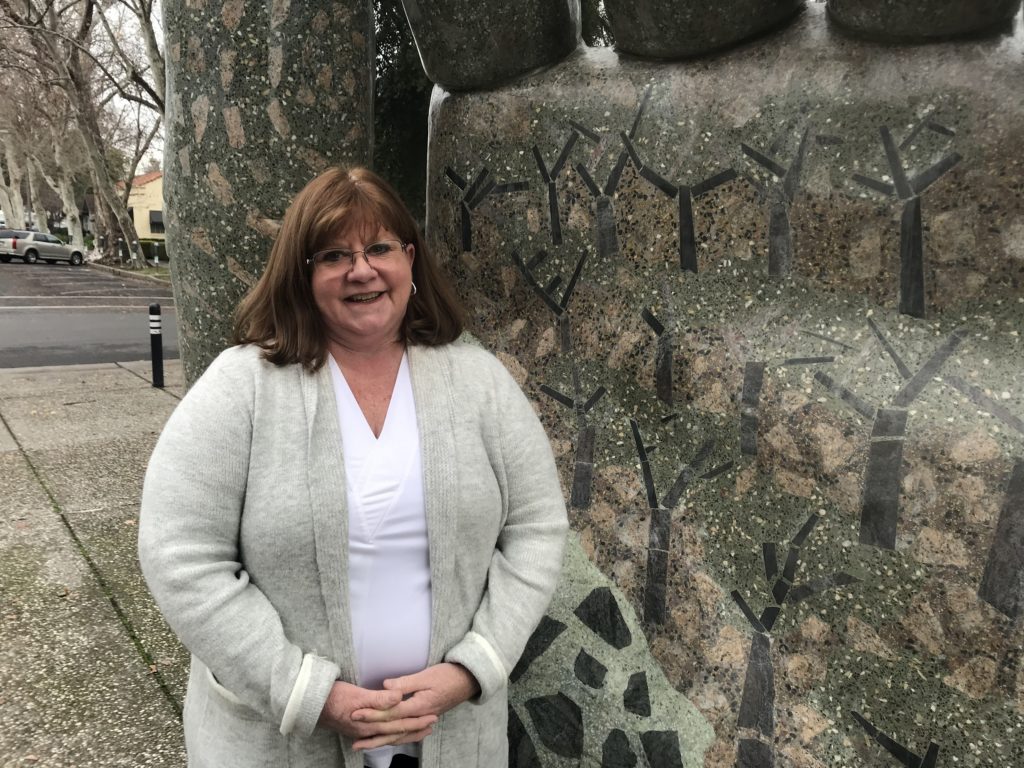
In addition to Kochems. Coolidge and Ritter, the group includes Councilmembers Sean Morgan and Kasey Reynolds, Supervisor Tod Kimmelshue, Chico City Manager Mark Orme, other city staff, county personnel from the departments of Behavioral Health and Employment and Social Services (DESS), and representatives for Assemblyman James Gallagher and Congressman Doug LaMalfa. The meetings have been held in person every month since January and at a different location each time (one each at DESS buildings in Chico and Oroville, and one at a Chico city building).
“At the last [city/county] meeting together, the City Council attendees (Morgan was not present and the discussion was led by the mayor) determined that additional emergency shelter beds may not be necessary to add to the continuum as there is consideration that there will be enough beds for the homeless who want to stay in a shelter bed once the ‘new’ beds currently under development are made available by service providers,” Kochems told the CN&R March 30. “This thought process is considering that there are quite a few of the Chico homeless that prefer to live outdoors in a nomadic type of environment.”
Kochems said the group approved a plan to conduct needs assessment surveys at the meeting.
The new beds Kochems referred to are various projects included in a report on upcoming shelter beds she presented to the council on March 16. However, many of those 390 potential beds will not be available for months or even years, and some—like 100 beds that could possibly manifest by February 2023 as a result of affordable housing efforts—are hypothetical. Only 50 beds—from a Torres Community Shelter expansion—will provide additional emergency shelter on a nightly basis.
Regarding sanctioned camping, Kochems said her statement in the email to an advocate was based on the council’s lack of receptiveness to solutions.
“The City Council has been provided many safe parking and outdoor sheltering proposals/solutions by individuals and service provider organizations since my tenure with the city,” she said. “These solutions have come through city email in which City Council members and city staff have been copied. At any time, council members could move a solution to a City Council agenda for further discussion, and that has only happened once and council did not approve it [a ‘safe parking’ initiative proposed by the North State Shelter Team that would allow overnight vehicle stays at the Caltrans park and ride on Highway 32, rejected Feb. 2]. As well, city staff have presented options for council to consider and that has not made any forward momentum in the past eight months. One might say that council members are not interested in implementing an outdoor shelter environment.”
Debatable direction
Coolidge said the discussions had at the March city/county collaborative meeting have not impacted city policy toward efforts to address homelessness or Kochem’s direction as homeless solutions coordinator.
“A variety of items were discussed at that meeting but there was no direction, per se, in terms of what needs to be done or what doesn’t,” he said during a phone interview April 1. “Even if there was, that’s not council direction, which would require a vote and discussion and public input. We do have some items coming up [at City Council meetings] that might outline those items more.”
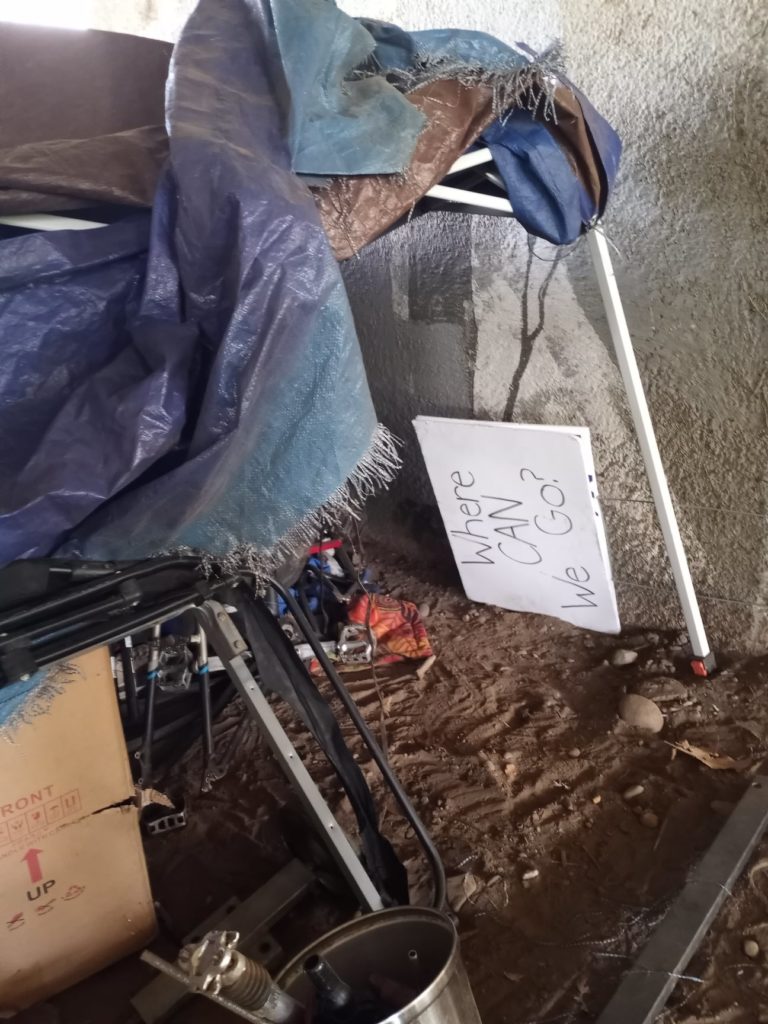
Asked if he believes a substantial portion of the homeless population prefer a nomadic, unsheltered lifestyle, he said he in unsure, which is why the survey is needed.
“I think the idea behind that survey is to establish whether or not, if we have beds available, people want to actually take them, and if they want to actually go get help somewhere versus if they just want a camping environment to live life as they please,” he said. “There’s a strong urge to find out what exactly the folks in those particular homeless communities want and need rather than just providing more beds or services that they’re not going to take advantage of.”
Regarding sufficient shelter, Coolidge provided a spreadsheet showing that in 2019, Butte County ranked 10th out of 44 Continuum of Cares in the state according to available beds versus overall population as evidence that Butte County has an abundance of shelter space. The data he provided didn’t include the total or per capita numbers of unhoused individuals.
Ritter said she “couldn’t disagree more” with the ideas that Butte County has enough shelter options or that a significant portion of homeless people prefer a roaming, outdoor lifestyle.
“We absolutely need more emergency shelter beds,” she said during a phone call April 1. “Where this group landed is that the county has hired a nonprofit organization to do outreach and find individuals who are camping to find out if those individuals are willing to access services and beds.
“It’s putting 90 percent of the [homeless population] into a category that maybe 10 percent of people fall into … people who don’t want shelter, are treatment resistant, or have behavioral health and substance abuse issues that are so severe they can’t make a decision that we see as being in their best interest.”
Ritter said low-barrier shelter options are particularly lacking in the county, as are resources like detox facilities. She said it’s unrealistic to expect people to report to sober shelters when they run the risk of experiencing withdrawals.
When the CN&R informed Brown of the discussions at the March city/county meeting, she responded: “To say that people simply prefer a nomadic lifestyle seems highly misinformed, is certainly not data-driven and really discounts the nuances and complexities of sheltering environments and the barriers that people face when accessing those environments.
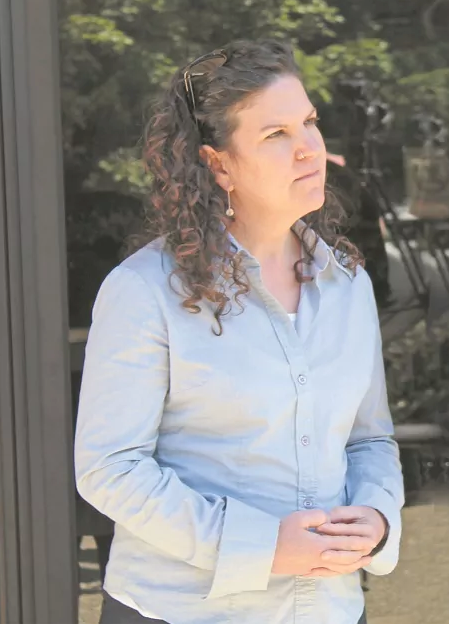
“I’ve been involved in the Greater Chico Homeless Task Force, the Continuum of Care, worked in the social services field, and not once have I heard that additional shelter beds aren’t needed,” she continued. “Not once have I heard that an outdoor sheltering environment isn’t an essential component in the CoC. I’m kind of dumbfounded to hear that this is a conclusion that people reached and that the public wasn’t involved in the process to really understand how those conclusions were reached. It makes it a non-starter when this comes into the public space. And it’s unethical, frankly.”
Proving a point?
Also at the March 12 city/county meeting, an organization called Point of Contact was awarded $9,000 in Emergency Solutions Grant COVID-19 relief funding to conduct the aforementioned survey in Chico, according to Butte County Housing and Homeless Administrator Don Taylor.
“We have provided them some survey questions that will hopefully give a level of detail that will aid the homeless services delivery system in assessing needs,” Taylor said April 4, explaining that the county plans to work with other organizations to gather information elsewhere in the county.
No service providers were present at the March 12 meeting, and Ritter said Vice Mayor Kasey Reynolds spoke on behalf of Point of Contact. Point of Contact is a brand-new group—founded in March—led by Laurie Maloney, a member of a local nonprofit group called the Chico Posse Foundation, whose efforts focused on providing furniture for transitional housing. On social media, some service providers and homeless advocates applauded Maloney’s work with the posse, but questioned Point of Contact’s ability to collect unbiased, valid information.
According to its website and Facebook posts, the group is dedicated to the “hand up, not hand out” philosophy and focused on “accountability” among the homeless community. Maloney and others featured in the “Meet the Team” section of the organization’s website have expressed unfaltering support for the city of Chico’s homeless encampment sweeps and other endeavors some critics label as anti-homeless. None of them have official social work education or experience. Maloney is referred to as a “freelance social worker” on the site, but her LinkedIn profile lists her educational background as a Pleasant Valley High School graduate with work experience in banking and real estate.
Maloney declined phone and in-person interviews and didn’t respond to emailed questions before press time.
“That’s not a thing,” Brown, who holds a master’s degree in social work, said of Maloney’s “freelance” title.
“I think the moment elected officials start relying on people with no background or experience or education in research, social work and the evidence behind what is useful and helpful to people experiencing homelessness is absolutely the moment we go in the wrong direction,” she said. “Outreach and education is an honorable cause … but there needs to be evidence to drive the work they’re doing. I’m not seeing that show up in this new group.”
Crisis continues
The CN&R spoke to the mayor on April 1. The same day, Chico police and public works staff were evicting campers from Windchime Park on Humboldt Avenue. The day before 72-hour eviction notices were delivered there on March 29, the CN&R counted more than three dozen tents providing shelter for more than 50 campers. Caltrans and the California Highway Patrol swept roughly two dozen more camps near the intersection of Highways 99 and 32 on March 31, meaning more than 75 unhoused individuals were set adrift in just two days last week. The last remaining large-scale encampment is at the Comanche Creek Greenway, where the population has swollen to hundreds in the wake of ongoing sweeps throughout the city.
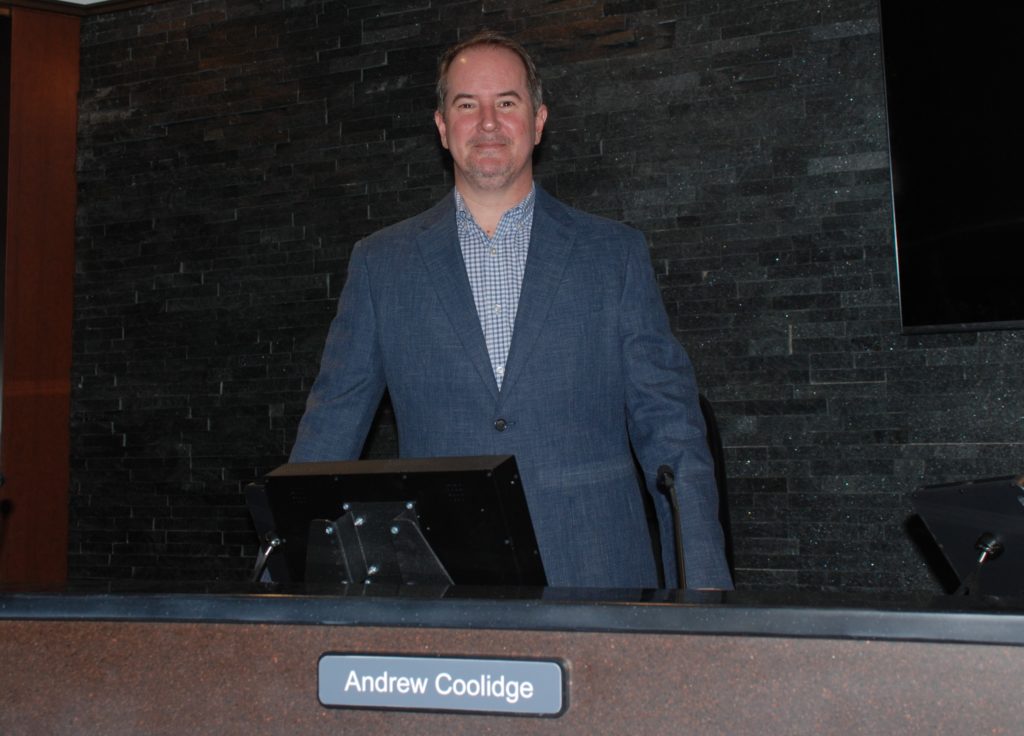
Coolidge noted—and the CN&R confirmed—that the Torres Community Shelter had 40 beds available the day of the Windchime sweep.
“You and I both know that a lot of those people won’t take those beds,” he said. “That’s the unfortunate reality; people need to connect with solutions … if they’re illegally camping and they’re offered help it’s important they take that help.”
The mayor said he’s confident the city has proceeded legally in breaking up encampments, though multiple legal challenges are reportedly being mounted. And though the city’s efforts have yet to amount to a single new shelter bed or legal camping space after a year of trying, he noted projects like the Jesus Center’s Renewal Center and the Chico Housing Action Team’s Everhart Village are underway. Both are transitional housing projects that will not supply overnight beds.
The only shelter space made newly available in the last several months is actually not “new,” but rather 50 beds that opened at the Torres Community Shelter due to the state’s shift to less restrictive COVID-19 tiers. Work on another 50 bed expansion at that shelter, funded in part by the city, is underway with a to-be-determined completion date.
Faced with those facts, Coolidge still contends the City Council is on the right path.
“I think the progress the current council has made has been amazing, to be quite honest,” he said. “Over the last four months, it’s been very positive. We’re providing the citizens with more info than they’ve ever seen before about behavioral health and the CoC, and hopefully getting this survey back from county will show exactly what the needs of these folks are. Honestly, looking at the previous council’s history on [homeless issues], obviously I believe there were shortcomings.”
Brown has an entirely different take on the current council’s handling of homeless issues and said revelations about the city/county group’s composition, conversations and actions are just the most recent example of what’s wrong.
“Elected officials are being barred from a process that most assuredly should be public,” she said. “If this were an ad hoc committee that was accessible and available to public, I could see value in it. Instead, it sounds like power plays, not evidence-based decision-making.
“It’s part of a continuing pattern of censoring voices that certain people don’t want at the table, in order to come to these types of conclusions that support certain value systems or beliefs about people experiencing homelessness with no credible evidence.”

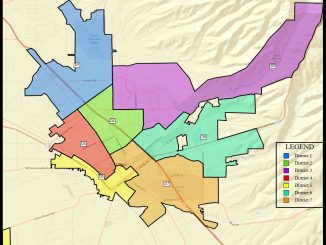

Who paid for the use of our public facilities for clandestine meetings? Was this even legal?
Sounds like a Brown Act violation to me.
Sounds like the same thing that was going on with the previous council and all their meetings. The only difference now is that Brown and Huber on the receiving end of being out voted , just like Morgan and Reynolds were. What is happening is we are seeing a shift of power and that shift is doing exactly what the citizens of Chico voted them in to do. If it isn’t the will of the majority of the citizens, the ex council members would still be holding their seats. I say good for the new council and doing what they took an oath to do, serve the citizens of Chico, that includes the unhoused, because without accountability and responsibility for their own life choices they will continue to rely on tax paying, law abiding citizens to continue to support them.
I spent a decade in Chico, both as an honors student and a near-homeless undesirable. I learned an interesting thing on my return as an undesirable. When you aren’t paying to study at the university, things change. I once sold poetry for spare change outside Safeway on Mangrove. When I had a few dollars, I’d buy bread, eggs, and potatoes. Places that fed us were closed on the weekends.
My heart broke when I read about the Camp Fire. Many of my old friends’ houses were leveled. Certainly, people remember the helpless running for their lives?
When I left Chico to study in the North Bay, I learned about existentialism, which I hated. But my new college town, Cotati, housed Sonoma Grove Trailer Park (now gone), a haven that allowed the down-and-out poets, musicians, and others respite.
Having nowhere to go, or call home can be a nightmare. Can’t someone find a patch of land for a trail park/campground? You know, the kind of place where people come first? I know the City Council has tabled this solution, but certainly, there is a way around the roadblocks.
Recently, The New Yorker published an article about trailer parks. It seems they have become investment opportunities, and rents are skyrocketing across America. In the April 5, 2021 issue, Stephen Parliament wrote a letter to the editor about trailer-park co-ops. I know many on the streets of Chico have limited resources, but Parliament may have some ideas that can help.
Many caring people are working on ideas for the homeless today in Chico. It might be worth a try. His address is the Department of Teacher Education, University of Wisconsin–River Falls, River Falls, Wisconsin.